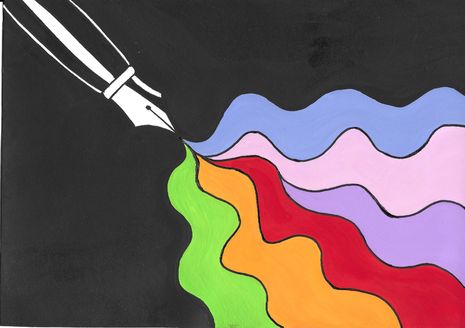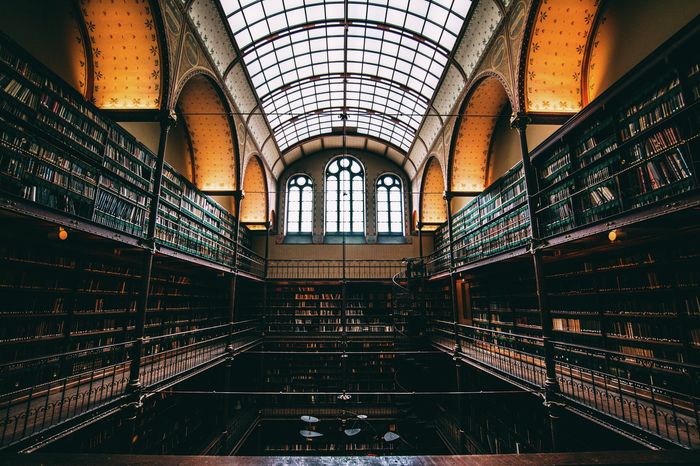The value of creativity
“I know that I feel more settled, more relaxed when I manage to make time for creativity.” Anna Stirk explores writing fiction as an escape from reality

Over the last year, and particularly after March (for obvious reasons), I started writing fiction in a big way. It had always been something I’d done and been interested in, but the busyness of everyday life had limited me to a couple of short stories a year, and not much development of my skills as a result.
But during the first lockdown, with literally nothing else to do, I took up creative writing again. I wrote around 350,000 words in total in 2020, with almost 75,000 of those coming in August alone. I’m still annoyed that I only wrote 74,318 words – why my past self couldn’t have found 682 extra words, I don’t know.
But regardless of the daily word counts I was piling up, writing fiction was an essential outlet for me during a turbulent, uncertain time. It was a method of escape, where I could close my bedroom door and fall into a different world, spending hours at a time tapping away to transfer the stories I had in my head into real words. On the other hand, it wasn’t entirely separate from real life – in Easter term, I was studying Anglo-Saxon social and economic history, which inevitably led to me writing some historical fiction set in Anglo-Saxon England.
All in all, creative writing got me through that long lockdown summer. Being able to retreat to somewhere, anywhere else was a gift, and one I am very grateful for. It felt good to use my words for something other than churning out essays every week, with the useful side effect of increasing my typing speed!
“It turns out limits to creativity exist, and they should be respected”
But my creative pursuits really took a knock once Michaelmas started. While the almost total cancellation of brass band activities was expected and had been ongoing since March, I struggled more than I had expected with the sudden lack of time for writing. Obviously, I wouldn’t be able to spend six or seven hours a day on it, but it was more the lack of emotional energy or headspace which kept me from such prodigious outputs as during the holiday, even when I did have a ‘free’ hour (in as much as time can be free at Cambridge).
The downside of such a spurt of creativity midway through the year, trailing off to almost nothing in November and December, was the feeling of being a cog in a machine or a hamster in a wheel. Particularly when engaging in creative spaces online, the pressure to generate content and constantly produce new words or drawings for people to consume can be too much.
You can see from the figures I quoted before that a ‘metrics culture’ can emerge, focusing on numbers to the exclusion of almost everything else. Who cares if you write the most perfect, heart-wrenching scene if it’s only 500 words in a day? Stepping away from this unhealthy mindset is difficult; the reason why I couldn’t physically write those extra 682 words in August to hit the magic 75k was because I was burned out. It turns out limits to creativity exist, and they should be respected.
“Creativity can facilitate connection even through something as small as a like on social media”
Another downside of creativity, and writing fiction in particular, which I have observed is the pressure to monetise the hobby. That could (and probably does, if I’m being honest with myself) explain my recent turn to student journalism rather than my beloved fiction. I enjoy this, to be clear, but there’s definitely a little voice in my head telling me this will be better for my future career prospects than writing fiction I will only ever share with a few people.
Since then, instead of focusing on metrics and productivity and even employability, I’ve been trying to reclaim some of the pure enjoyment that I used to feel while writing. Creativity can have mental and social benefits too, less tangible than the potential commercial profits but no less important. In a time when almost everyone is sequestered away from family and friends and community in general, creativity can facilitate connection even through something as small as a like on social media.
In response to one of my previous articles for Varsity, one of my former English teachers commented, telling me what she thought about it (in glowing terms, obviously – and if you’re reading this: hi! I really appreciate it!). I haven’t seen her in person since she came to visit me and a friend in Cambridge at the end of Michaelmas 2019, so it was nice to have that connection again, even in such a small way. The conversations which creativity can foster online can never make up for real-life interactions, but they are the most we can hope for at the moment.
I’m trying to take my own advice this term, about keeping a balance and keeping up with my hobbies. Being out of the Cambridge bubble helps, undoubtedly, but I know that I feel more settled, more relaxed when I manage to make time for creativity. It helps to offset all the academic (and, let’s be honest, sometimes quite dry) work and reading with which we have to contend, while making sure I have something to talk about with my friends other than Toope’s latest email or a post we saw on Camfess.
I suppose this article is a form of accountability for myself to keep up with my hobbies this term. I’m going to try my hardest, and I hope I’ve convinced you to try too.
 News / Hundreds of Cambridge academics demand vote on fate of vet course20 February 2026
News / Hundreds of Cambridge academics demand vote on fate of vet course20 February 2026 News / Judge Business School advisor resigns over Epstein and Andrew links18 February 2026
News / Judge Business School advisor resigns over Epstein and Andrew links18 February 2026 News / University Council rescinds University Centre membership20 February 2026
News / University Council rescinds University Centre membership20 February 2026 News / Petition demands University reverse decision on vegan menu20 February 2026
News / Petition demands University reverse decision on vegan menu20 February 2026 News / Caius students fail to pass Pride flag proposal20 February 2026
News / Caius students fail to pass Pride flag proposal20 February 2026










